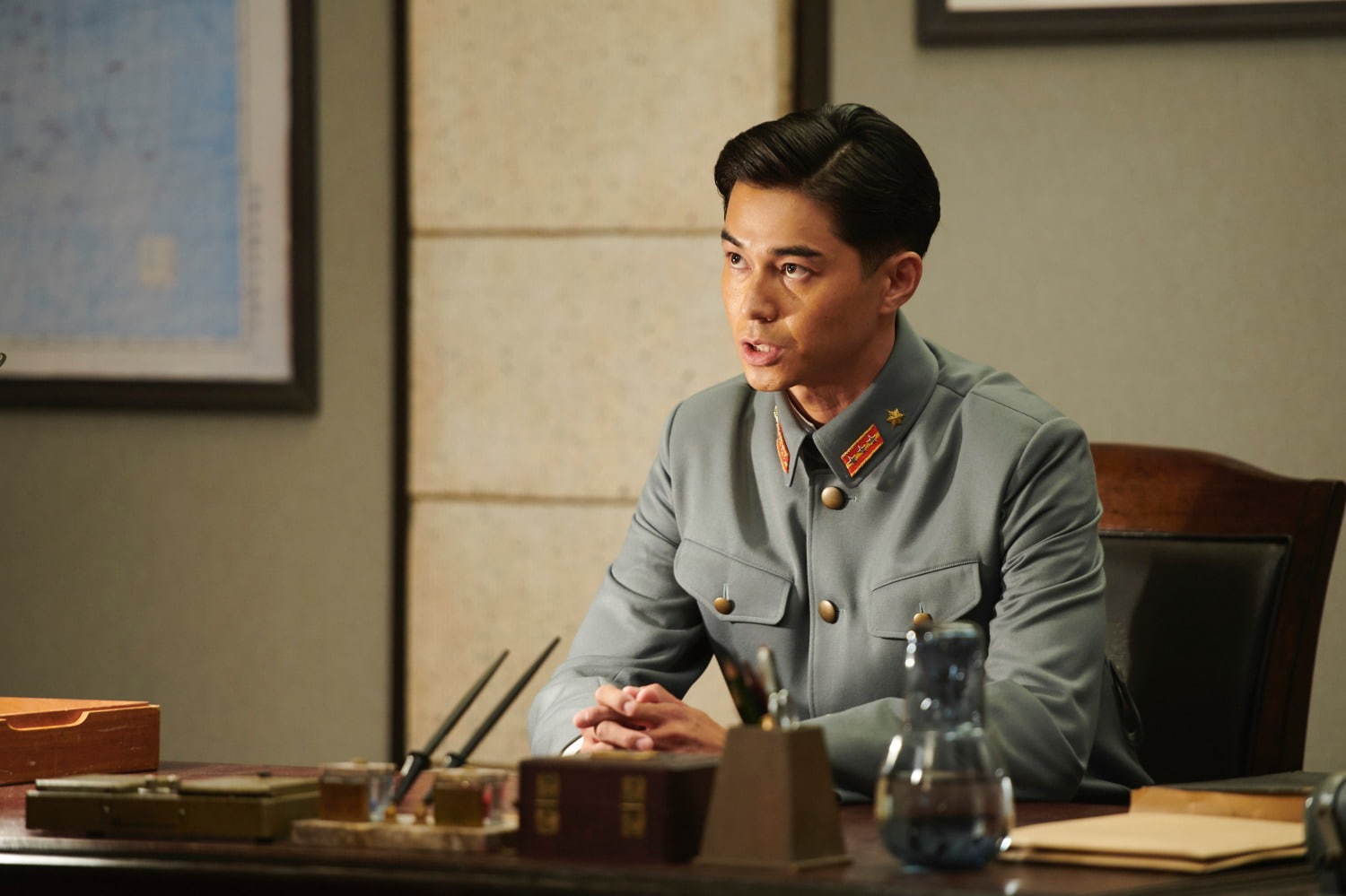
Espionage, love, and betrayal—Kiyoshi Kurosawa’s Wife of a Spy radically departs from the filmmaker’s esoteric repertoire of horror, sci-fi, and thriller flicks. Premiering at this year’s Venice International Film Festival, The Wife of a Spy is an elegant musing on nationalism, and offers a beautifully shot exploration of Japan’s evolution into fascism from a civilian’s perspective.
Empire Means Conquest
Wife of a Spy takes place in 1940, right after Japan’s invasion of Manchuria and prior to the signing of the tripartite pact. That year, Prime Minister Fumimaro Konoe enacted the Imperial Rule Association, which established one-party rule and transformed Japan into a fascist state. With bold aspirations of eradicating sectionalism and mobilizing the country towards a real empire, the fascist transformation fundamentally re-engineered civilian society and ultimately precipitated WWII.
The film explores this evolution into fascism from the eyes of wealthy silk merchant Yusaku Fukuhara (Issei Takahashi) and his wife Sakoto Fukuhara (Yu Aoi). The film opens with the military police arresting Yusaku’s business partner, a pouty British gentleman, for “leaking state secrets.” When the local kempeitai military policeman Captain Taiji (Masahiro Higashide) learns Yusaku paid the Briton’s bail, he warns Yusaku “to be careful of who he considers his friends.”
Seeing the writing on the wall and anticipating an expanded war, Yusaku’s first instinct is to go on a shopping spree in Manchuria before the borders close. Yusaku gets much more than he bargained for, and returns a changed man. We later learn that he witnessed and found evidence of the infamous human experiments conducted by Unit 731 of Japan’s Kwantung Army.
A new sense of purpose now drives Yusaku: exposing the Kwantung Army’s crimes, and bringing justice to their victims. However, when Taiji learns of the secrets that Yusaku possesses, the two men begin to play a dangerous game of hide and seek.
Justice is Universal

Yusaku and Taiji represent two ends of a changing spectrum—Yusaku is a self-proclaimed “cosmopolitan” who doesn’t believe “borders exist,”’ while Taiji is a hardened nationalist that believes in country first. Yusaku’s humanist sense of justice motivates him to expose the crimes of Unit 731, which conflicts with Taiji’s belief that the Empire can do no wrong.
Wife of a Spy does an excellent job of contextualizing the conflict between Yusaku and Taiji. However, Yusaku’s own character journey leaves much to be desired. While it makes sense that Yusaku could change after witnessing such cruelty, it’s still unclear how he changed. The film should’ve explored the underlying motivations behind Yusaku’s decision to expose Unit 731’s crimes. His transformation from being a sensible, practical merchant to an impassioned arbiter of justice feels contrived.
At the very least, Wife of a Spy offers a stern warning for contemporary viewers to not repeat the mistakes of the past, especially as Japan experiences increasing nationalism and militarism today. Like Studio Ghibli’s classics The Wind Rises and Grave of the Fireflies, the film not only contains an anti-war message, but also focuses on the home front—which arguably makes it more relatable to everyday audiences. Director Kurosawa himself hopes that the film will reignite provocative discussions of this painful period in Japanese history. However, he’s rather pessimistic that the film will create much real change, given the apathy of younger Japanese.
Even so, Kurosawa has more than done his part to make people listen. Warm creams and subdued greens, gorgeous set designs, and chic costumes add a romantic charm to the film. Combined with Kurosawa’s precise compositions and contemplative pacing, Wife of a Spy has a classic flavor that harkens back to the golden age of Japanese cinema. It’s no surprise, given that Kurosawa has mentioned Yasujiro Ozu as one of his prime inspirations. Kurosawa’s Ozu-esque style encourages deep empathy and a real relationship with the characters in view—something often missing in plot driven films. The sheer aesthetic beauty also adds to the richness and weight to the film and its advocacy of peace. If Japanese youth don’t heed Kurosawa’s message, it’s certainly not his fault.
Overall, Wife of a Spy is worth watching if you’re interested in Japanese history or movies that depict life in a fascist society from a civilian perspective. If the historical angle doesn’t interest you, it’s still worth viewing for its stunning aesthetics, star-studded cast, and classical storytelling that expertly weaves suspense, tragedy, and political commentary.
• • •
Wife of a Spy (Japanese: スパイの妻)—Japan. Dialog in Japanese. Directed by Kiyoshi Kurosawa. First released June 6, 2020. Running time 1hr 55min. Starring Issei Takahashi, Yu Aoi, Masahiro Higashide, Ryota Bando, Yuri Tsunematsu, Takashi Sasano.
Wife of a Spy is part of Cinema Escapist’s coverage of the 2020 Venice International Film Festival.
